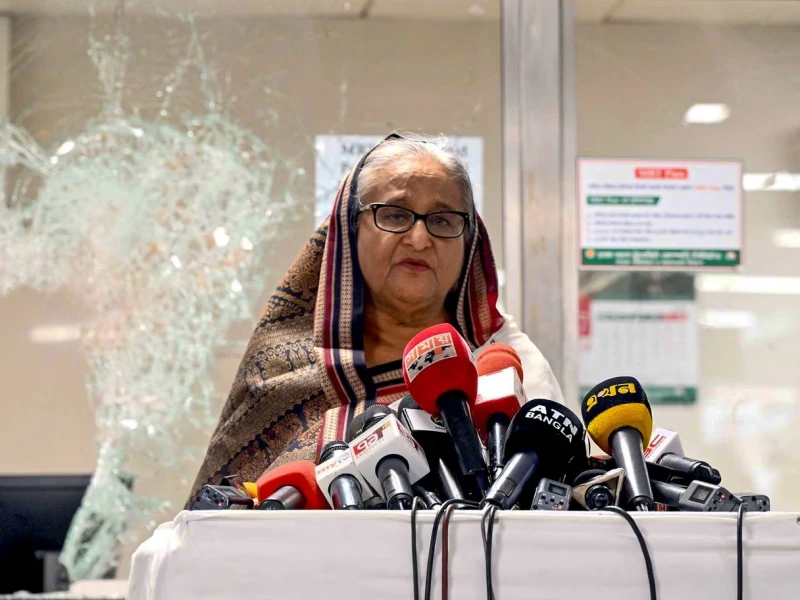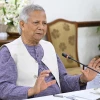Former Bangladesh Prime Minister Sheikh Hasina has refused to apologise for last year’s deadly crackdown on student-led street protests that ultimately led to her ouster, saying she “mourns every life lost” but denies ordering lethal force against demonstrators.
In a rare interview with The Independent, Hasina, now living in exile in India, rejected accusations that she committed crimes against humanity, describing the ongoing proceedings at Bangladesh’s International Crimes Tribunal (ICT) as “a sham trial” motivated by political vengeance.
The ICT is a sham court presided over by an unelected government consisting of my political opponents,” Hasina said. “Because of my family’s history, nobody can be more aware than I am of the history of political assassinations in our country, and this move by the ICT is part of that ugly tradition.”
Prosecutors in Bangladesh are seeking the death penalty for Hasina, accusing her of ordering the use of lethal force against student protesters last year that reportedly left up to 1,400 people dead.
Hasina, who ruled the country for over 15 years, said she would “neither be surprised nor intimidated” if sentenced to death, maintaining that the allegations were fabricated.
She defended her government’s actions during what she termed a “violent insurrection”, blaming the high casualty numbers on “breakdowns in discipline among security forces on the ground.”
As a leader, I ultimately take leadership responsibility, but the claim that I ordered or wished for the security forces to open fire on the crowds is simply wrong,” she said.
Hasina also claimed that her government had initiated an independent inquiry into the initial violence, which was later shut down by the interim administration led by Nobel laureate Dr Muhammad Yunus.
The former prime minister said her Awami League party was being “unfairly denied” participation in new elections under the unelected interim government, which banned all party activities after she fled the country on August 5 last year.
Hasina argued that the oft-cited death toll of 1,400 was “inflated for propaganda purposes,” claiming the violence stemmed from “decisions made by officers on the ground rather than directives from her government.”
The charges rely on compromised testimony and evidence manipulated to serve political ends,” she said.
The student-led protests, which began in July last year over government job quota reforms, quickly evolved into a nationwide anti-government movement. Security forces responded with heavy-handed measures, drawing global condemnation.
Amnesty International’s Deputy Regional Director Babu Ram Pant described the crackdown as “a shocking indictment of the authorities’ absolute intolerance to protest and dissent,” while UN Human Rights Chief Volker Türk called the attacks on students “shocking and unacceptable.”
Hasina defended her decision to flee Bangladesh, saying she acted “out of necessity” to protect herself and those around her.
Staying would not only have put my life in danger, but also the lives of those around me,” she said.
Despite her exile, Hasina said she remains committed to “restoring democracy” in Bangladesh. “Only free, fair, and inclusive elections can heal the country,” she added.
Dr Yunus, who assumed leadership of the interim government three days after Hasina’s ouster, has pledged to hold elections in February 2026 — a vote from which the Awami League will remain barred.


 Prev Post :
Prev Post :
